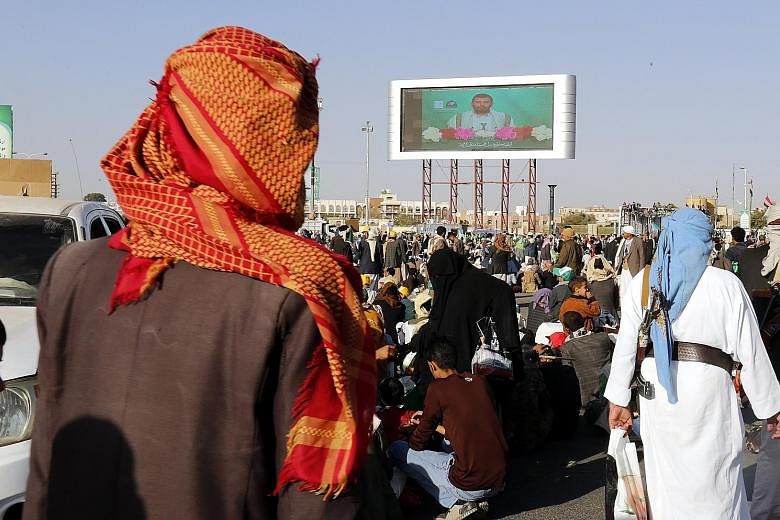UNITED NATIONS • Remnants of four ballistic missiles fired into Saudi Arabia by Yemen's Houthi rebels this year appear to have been designed and manufactured by Riyadh's regional rival Iran, a confidential report by United Nations sanctions monitors said, bolstering a push by the United States to punish the Teheran government.
The independent panel of UN monitors, in a Nov 24 report to the Security Council seen by Reuters on Thursday, said it "as yet has no evidence as to the identity of the broker or supplier" of the missiles, which were likely shipped to the Houthis in violation of a targeted UN arms embargo imposed in April 2015.
Earlier last month, US Ambassador to the United Nations Nikki Haley accused Iran of supplying Houthi rebels with a missile that was fired into Saudi Arabia in July, and called for the United Nations to hold Teheran accountable for violating two UN Security Council resolutions.
The report said that monitors had visited two Saudi Arabian military bases to see remnants gathered by the authorities from missile attacks on Saudi Arabia on May 19, July 22, July 26 and Nov 4.
They also visited four "impact points" from the Nov 4 attack, where other remnants of the missiles were identified. "Design characteristics and dimensions of the components inspected by the panel are consistent with those reported for the Iranian-designed and manufactured Qiam-1 missile," the monitors wrote.
The Qiam-1 has a range of almost 805km and can carry a 635kg warhead, according to GlobalSecurity.org, a public policy organisation.
Saudi-led forces, which back the Yemeni government, have fought the Iran-allied Houthis in Yemen's more than two-year-long civil war. Saudi Arabia's Crown Prince has described Iran's supply of rockets to the Houthis as "direct military aggression" that could be an act of war.
Iran has denied supplying the Houthis with weapons, saying the US and Saudi allegations are "baseless and unfounded". Iran's mission to the UN did not immediately respond to a request for comment.
The UN monitors said they gathered evidence that the missiles were transferred to Yemen and assembled there by missile engineers with the Houthis and allied forces loyal to Yemen's former president, Ali Abdullah Saleh. They visited Saudi Arabia after calling on the coalition to provide evidence backing Riyadh's claim that Iran was supplying missiles to the Houthis.
They said the missiles most likely were smuggled into Yemen along "the land routes from Oman or Ghaydah and Nishtun in al Mahrah governorate (in Yemen) after ship-to-shore trans-shipment to small dhows, a route that has already seen limited seizures of anti-tank guided weapons".
The Saudi-led coalition used the Nov 4 missile attack to justify a blockade of Yemen for several weeks, saying it was needed to stem the flow of arms to the Houthis from Iran.
The UN has said the blockade could spark the largest famine the world has seen in decades. Some seven million people in Yemen are on the brink of famine.
REUTERS

